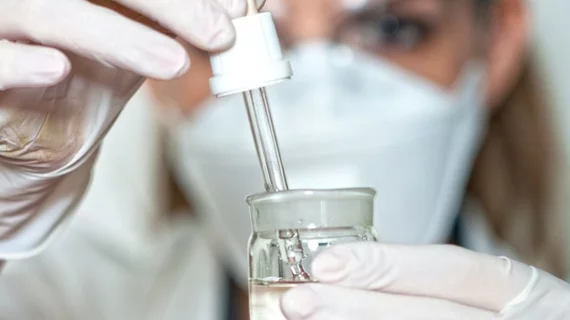AI, virtual reality combine to fine-tune drug compounds for fighting COVID-19
Researchers have demonstrated a way to visually explore small-molecule inhibitors that, according to algorithmic suggestions, show potential for targeting COVID-19’s main proteins.
The team, comprised of investigators at the San Diego virtual-reality startup Nanome and an AI drug-discovery company based in Hong Kong, Insilico Medicine, describe their work in ResearchGate and chemrxiv.org.
Nanome has additionally sent an announcement describing the collaboration’s technical advancement in lay language.
“Many potential therapeutics aimed at containing the spread of SARS-CoV-2 have targeted the S, or spike, protein, a surface protein that plays a vital role in viral entry into host cells,” according to the announcement. “However, two-thirds of the SARS-CoV-2 genome comprises non-structural proteins, such as the viral protease (the protein necessary for viral replication), which shouldn’t be overlooked as potential therapeutic targets.”
To this the study’s lead author, Insilico CEO Alex Zhavoronkov, PhD, adds that the main protease in SARS-Co-V-2 is “a much more druggable” protein than the spike protein.
“It contains a pocket perfect for small molecule inhibitors,” he says.
Zhavoronkov and colleagues hope the compounds will soon be tested in clinical trials.

